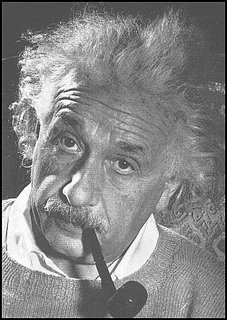The power of Flow - My Review
Despite its sub-title, I did not buy this book as a "how-to" guide. Rather, I bought it to read more about what Carl Jung described back in the 1920's. Nine decades have passed and, judging from what "Flow" has to say about the topic, it seems little to no progress on the subject has been made regarding the study of intuition and, or synchronicity.
The premise of this book is that we can radically alter our lives by relying more consistently on intuition and remaining receptive to possibilities. The authors argue that nearly all events in our lives 'broadcast' themselves to us in advance of their actual occurrence and we can thus be prepared to either meet or capitalize on the challenges and presumably minimize or even avoid catastrophic events all together. Owing to its desultory layout, the name, "Flow" is a misnomer. It is loosely organized into three sections.
While the notion is appealing and there is something to be said regarding the value of intuition, the authors really offer no scientific methods by which to quantify their hypotheses. Instead, they dedicate the first third of the book relating what I can only describe as 'post-data,' consisting of anecdotal recitations by people who ascertained events that indeed happened to them presented signs which, in retrospect seemed to foreshadow or even forewarn of an upcoming event.
As a ground breaker, the authors offered a 'quiz' of sorts with the intent of piquing the reader's interest by laying out questions which determine the reader's potential to 'read' the signs as it were. Anyone with the highest score is said to be a 'flowmaster' - someone who has highly developed intuitive skills.
The next section of the book was dedicated to focusing the reader on how to become more intuitive by attenuating receptive qualities common to 'flowmasters.' The last portion of the book moved much in the same direction, and focusing on developing/maintaining mindfulness ostensibly to further enhance intuitive abilities.
I remain convinced that synchronicity is a very real phenomenon - and I do rely on intuition quite a bit. However, I came away from this book thoroughly unconvinced that the authors had any more of an inkling than any other garden-variety person, of how to tap into it. Their philosophy was nebulous at best. For example, at one point, in the beginning of the book, they were dismissive of religion. It was a bold stance which I somehow expected them to reinforce with research... or something. But that never happened. Instead, they went on to describe events that people clearly identified as intuition-related - explainable on? - the basis of their religious beliefs. I found my skepticism building with each subsequent story cited by the authors because their recurrent approach seemed to take on an air of begging the question - almost as though they would present some weird phenomenon and then ask, 'has this ever happened to you? - much like the flowmaster 'quiz' early on in the book.
As it progressed, it took on the tone reminiscent of Jeff Foxworthy's invocation, 'you may be a redneck if...' If it weren't for the fifteen bucks plus tax I dropped on this book, I probably would have laughed. but with every story, it seemed like the underlying theme was evolving on this 'scholarly' how-to book on refining intuition was simply a matter of substituting, 'redneck' with 'flowmaster.'
Some of the stories were believable but they became less so, and hokier until they just lost traction altogether. The one which lost me was a story of a woman who had a 'premonition' of sorts as she was waiting to undergo an abortion when all of a sudden, the thought of her young niece popped into her mind. Fast forward 13 years and that very niece was having an abortion and the preceding abortion experience prepared, or qualified the aunt (presumably a best-fit practice?) to help her niece go through the trying experience of having an abortion.
The authors cite numerous other stories which can also be explained as people searching for underlying meaning of events which may or may not be related. It seems like the need to explain something provides the perfect ground for retrofitting the past by causal analysis in a way that involves making the precursor events fit the 'resultant' incident.
In chemistry, there is a practice called stoichiometry where the end product is reverse synthesized and the parts can be determined by tracing a reverse chemical process. It is difficult to master but it can be done. This is what I thought the authors were setting out to do. They did nothing of the sort. Because their approach completely lacked any scientific methodology and because they rely so heavily on anecdotal references, the entire book comes off as a pastiche of the scientific method which they seem to be alluding to in their methodology.
Don't waste your time with this book. It is just modern-day snake-oil in print. It doesn't even deserve one star. The funny thing is, my intuition warned me about this book. Now, isn't that ironic?





